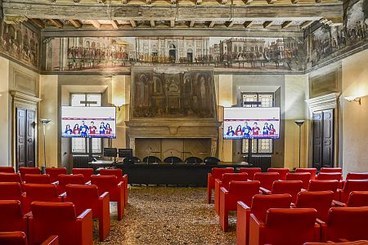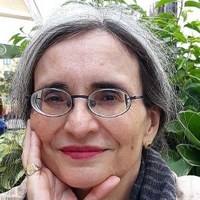A partial mediator: Petrus Alfonsi between Jewish tradition, Islamic science and Christian faith
A Bridge Between Religions and Cultures in Medieval Europe

-
Date: 14 NOVEMBER 2023 from 17:30 to 19:00
-
Event location: Institute of Advanced Studies - Sala Rossa, Palazzo Marchesini, Via Marsala, 26 - Bologna
-
Type: Lectures
Petrus Alfonsi is a truly European intellectual: born a Jew in Islamic Spain, he was baptized in the kingdom of Aragón, and traveled to northern France and England, where he was a teacher of astronomy. His major work is a treatise on Judaism, Islam, and Christianity known as Dialogus, since it is presented as a dialogue between the author, Petrus, and his Jewish former self, Moses.
Petrus presents himself as a scholar at home in Jewish tradition, Islamic science, and Christian doctrine, who can judge as an impartial umpire of the claims of the three religions, measuring all three by the standards of rationality. Yet Petrus gives biased information. His polemic against the Talmud brings this work to the attention of Western Christians, ushering thus a new phase of anti-Jewish polemics. More importantly, he surreptitiously uses Midrashim, Jewish exegesis, and Arabic philosophy to support his apology of Christian doctrine. He also seems to adapt Jewish discussions between philosophers and rabbis to the interests of his Christian audience. The Dialogus had great success in the Middle Ages and early modern period, driving the attention of its readers to Jewish tradition and Arabic science. The lecture will present and discuss this work as a model and representative example of the contacts of Christian Europe with other cultures in the Middle Ages, characterized by curiosity and genuine interest, but also by mistrust and appropriation.
DO YOU WANT TO ATTEND THIS LECTURE?
-
Sala Rossa, Palazzo Marchesini, Via Marsala, 26 - Bologna
If you prefer to attend this lecture in presence, you should write to segreteria.isa@unibo.it within November 14, 12 p.m. and book your place. The places will be assigned on “first come first served” basis.
PhD students and researchers who are interested may request an attendance certificate.
The delivery of the attendance certificate requires the attendance of at least 70% of the lecture.
